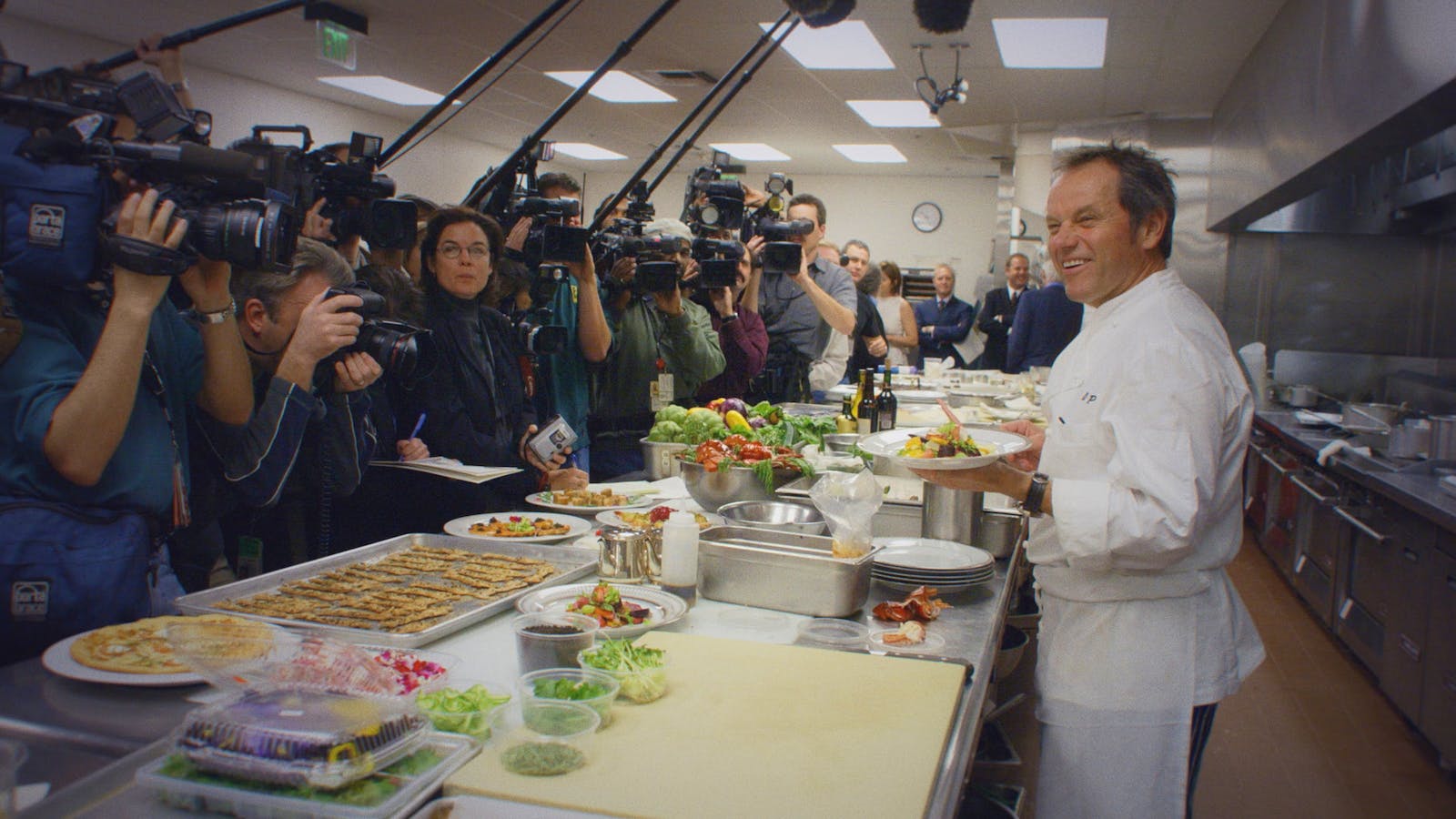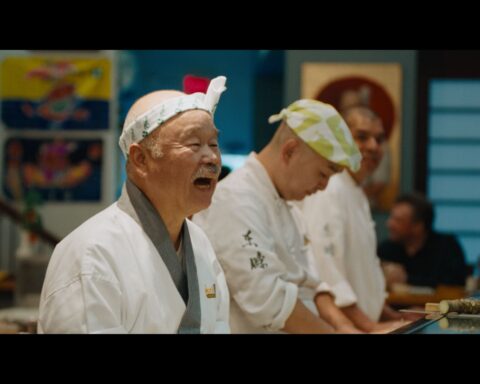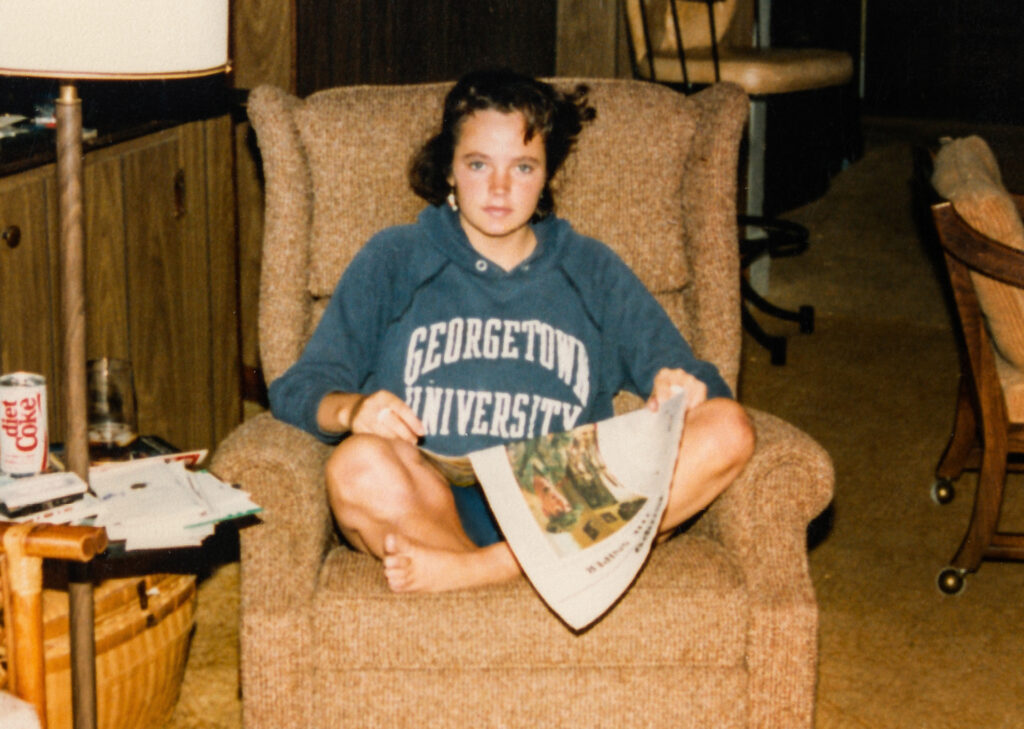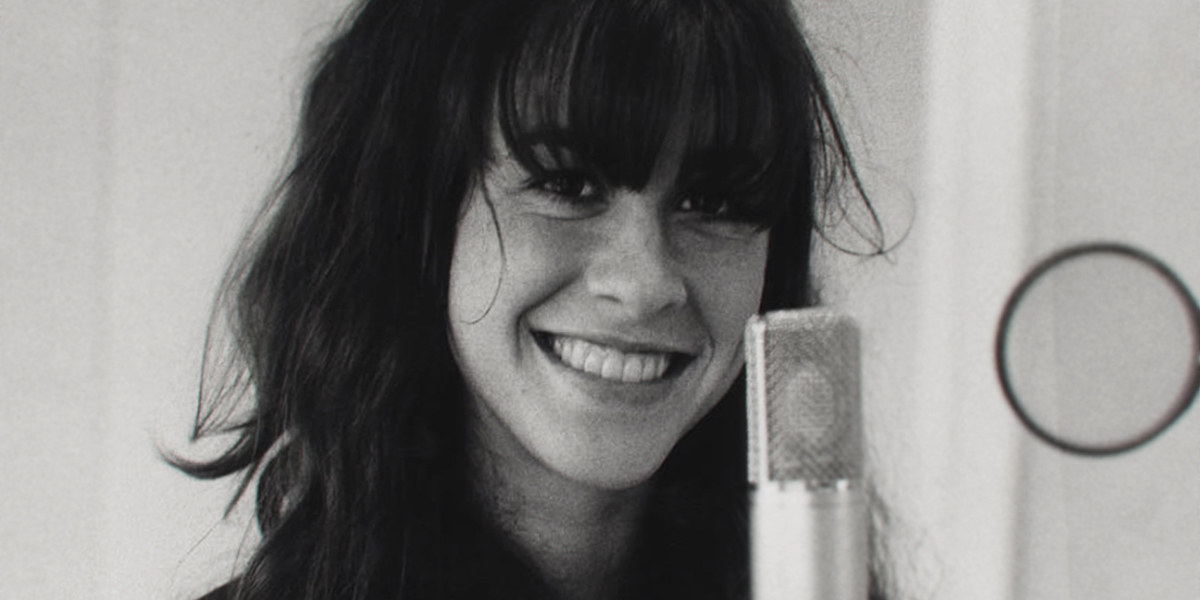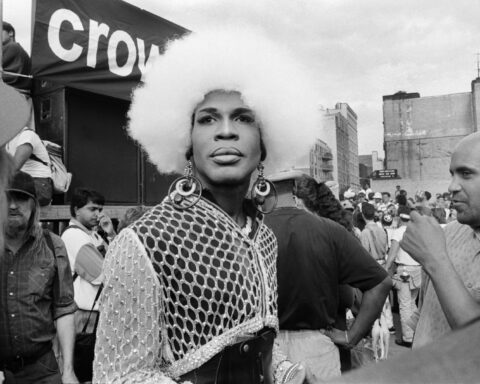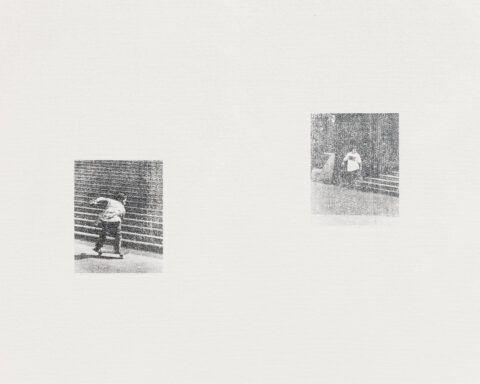Wolfgang Puck has been called the “original celebrity chef” for the way he revolutionized American cuisine and elevated the role of chefs in American culture. Though he was not the first chef to appear on television—Julia Child was already nationally televised in the ‘80s when his star status began to rise—-he is the one who became associated with the glitz and glamour of Hollywood. His first restaurant, Spago, was the place that famous people flocked to in droves to dine and be seen. One’s celebrity status and influence could be altered each week simply based on the table you were seated at Spago. But as David Gelb’s documentary Wolfgang notes, Puck may have famous clientele, and made numerous red-carpet appearances, but it has always been about what is on the plate, and not who he is serving it to, that drives him.
The act of cooking was not merely a passion of Puck’s, but a security blanket in which he could tightly wrap himself. Growing up in a poor Austrian household, he would spend his Sundays in the kitchen helping his mother. It was the one place where he could find moments of solace from his abusive coal miner stepfather. Puck’s interest in food eventually led to a short-lived apprenticeship at a local hotel restaurant where he peeled potatoes and cleaned the kitchen. Despite his stepdad’s belief that real men stay out of the kitchen, Puck was determined to be a chef. At age 19 he traveled to France and landed a job at a restaurant run by famed chef Raymond Truilier.
Becoming an apprentice under Truilier, Puck not only learned the ways of French cuisine, but also felt appreciated for the first time in his life. If his time in France was a dream, then his journey to America at age 24 was the alarm clock that provided the rude awakening. As several people note in Gelb’s documentary, America had no identity when it came to food in the 1970s. The taste was bland as most menus served frozen pre-packaged items. This all changed when Puck became the head chef at Ma Maison, a restaurant owned by Patrick Terrail, the nephew of a famed French restaurateur, and began sourcing fresh produce and meats.
In a matter of months his menu and new approach to using fresh foods revitalized Ma Maison, which had a bad reputation prior to him taking the chef role. However, when Puck’s food generated a drastic uptick in customers, Terrail took all the credit. Even when speaking to Gelb in the film, Terrail still defiantly asserts that it was his own name that drew people to Ma Maison. Growing increasingly frustrated with Terrail and the lack of proper compensation for the long hours he put in, and at the encouragement of then wife and business partner Barbara Lazaroff, Puck decided to branch out and start his own restaurant.
Originally envisioned as a pizza place, Puck’s Spago quickly became the new face of California cuisine. He became renowned for his ability to embrace reinvention on the fly. Famously, Puck’s popular salmon pizza was birthed out of the need to find something to feed actress Joan Collins when he ran out of her favourite dish. Added to Puck’s improvisatory skill was Lararoff’s vision of the restaurant: the duo proved to be a formidable combination. Before they knew it, the pair had built a culinary empire that spanned restaurants, frozen food products, cookbooks, and more.
Despite the success that he has attained, Puck refuses to rest on his laurels. The shadow of Puck’s stepfather hangs over Wolfgang like a ghost who is unable to fully be exorcised. Shaped by his early experiences, Puck has been in a never-ending invisible race with the past. Some of Wolfgang’s most compelling moments come when Puck and Lararoff are discussing how they grew their enterprise and the ways in which Puck’s obsession with work ruined their marriage and placed a wedge between him and his children.
For a film about a man shaped by his turbulent relationship with his father, Wolfgang rarely dives into Puck’s relationship with his own children with any depth. Puck makes several references to not wanting to become his stepdad, but the documentary glosses over his inability to be the type of father his children needed. One sees the bond that he and his adult son Byron, who is a chef, now have in the kitchen, but it almost feels like an afterthought. Gelb is far more interested in those who played a role in the earlier stages of Puck’s career.
Frequently shifting between his apprenticeship in Europe and rising success in America, Gelb’s film constructs an intimate portrait of the famed chef. Primarily utilizing archival footage and interviews, and occasionally incorporating re-enactments to highlights in a few key moments in the culinary wiz’s youth, Gelb’s approach feels surprisingly safe stylistically given the exuberant subject he is documenting. The food porn is sadly lacking here. Puck is credited for creating fusion food, but only a few of his dishes are shown, with Gelb relying on Puck recounting his own story to pull along the documentary.
While Puck’s modesty can be traced back to his humble upbringing, Gelb’s documentary effectively reminds audiences that there would be no Jamie Oliver, Gordon Ramsey, Rachel Ray, Emeril Lagasse, Bobby Flay and countless other celebrity chefs if it were not for Wolfgang Puck. Predating the Food Network, Puck created the blueprint that many celebrity chefs and restaurateurs, many of whom incorporate his open kitchen view in their designs, now follow. Stressing the need to never let expectations of the past weight you down, Wolfgang offers an interesting, if conventional, portrait of a chef always on the hunt for his next great dish.




